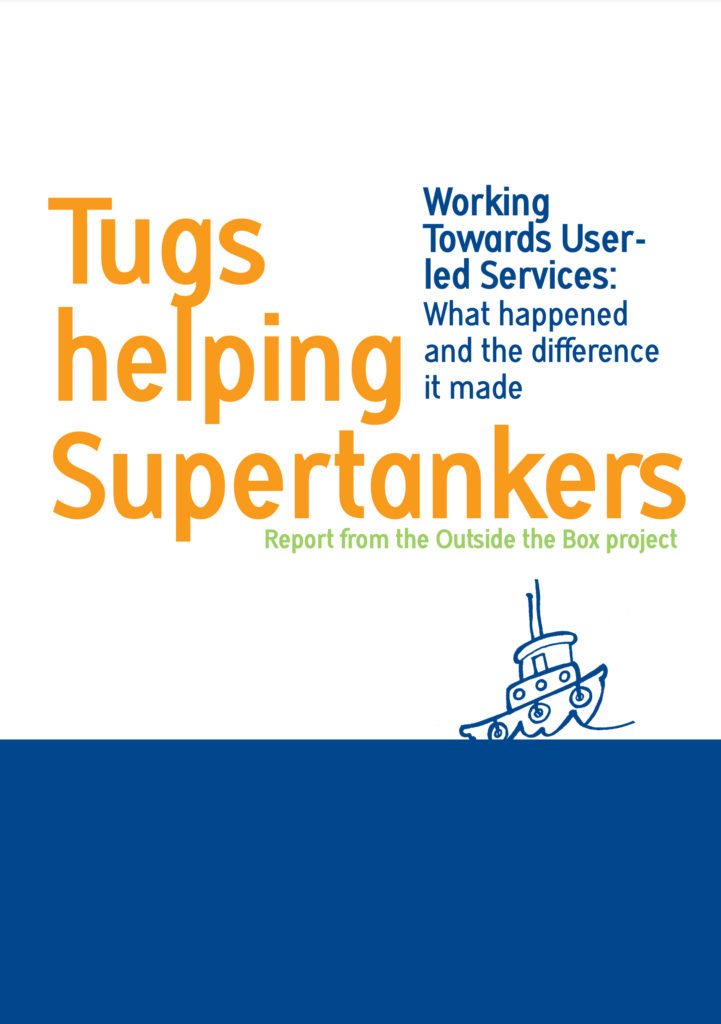Policy, Planning & Development Officer, Community Justice
Those directly involved with using a service should be at the centre of the planning and delivery of services. User led services are:
“led by the people who will be using those services, or by people who share very similar circumstances to the target service user group (or members, or consumers, or clients, or other term that the people in that situation prefer to use). Sometimes, this will mean that everyone leading the service – for example, on the board of a voluntary organisation – will be someone with experience of using the services that the organisation delivers. In other examples other people will also be involved but there will be a majority of people with relevant lived experience.”
(Working Towards User-Led Services: What Happened and the Difference it Made)
(Outside the Box 2013, pg. 3).
CLICK THE PICTURE LINK TO ACCESS THE FULL DOCUMENT:
Service users can be involved in:
- delivering programmes and services;
- providing peer to peer advice and support;
- engaging in consultative forums;
- running networks or organisations; and
- providing feedback through research and evaluation.
Evidence such as ‘Shaping the Criminal Justice System: The role of those supported by Criminal Justice Services’, (Weaver, B & Lightowler C 2012) shows that by involving those service users in the key direction and planning of the service it has positive effects on not only the service user but for the service.
“If services are co-designed or produced by those who are, or have been, supported by these services, they may well be more likely to be fit for purpose and thus effective”
Dr Beth Weaver wrote:
“…. by involving service users in the planning and delivery of services it can improve the overall service delivery, it can reduce re-offending and desistance from crime, it can prevent the ‘offender’ stigma to help these individuals construct a positive identity for themselves which can build service users self-esteem and confidence. It can also help others well-being through mentoring, peer support and volunteering and gives service users purpose and also provides service users with skills which can contribute to employment or volunteering and further develop their social inclusion.
(Beth Weaver & Claire Lightowler, 2012).
Service users who are involved in the delivery and planning of the service are often seen as role models to other service users, respected for their insight into the service and how other service users may feel or the challenges they may be facing. These individuals can be seen as more credible and may attract individuals who have needs but would not have used the service otherwise:
“This is particularly important because evidence tells us that efforts to support change rely on significant engagement from those who have offended with the purposes of supervision”
(Outside the Box 2013).
Our organisations can continually learn and improve services by involving service users in the development of the service:
“Communities and service users contributing to improved services, outcomes and achievable and sustainable solutions. To realise co-production, change must be both enabled and supported.” For this change/shaping of the community justice system to be effective it is important that our services acquire a flexible and creative approach to practice so that it is person centered and not program or practice focused.”
(Beth Weaver & Claire Lightowler, 2012).




